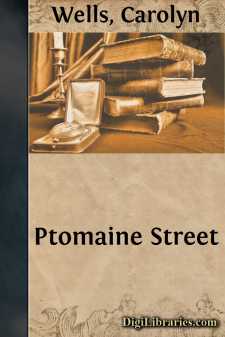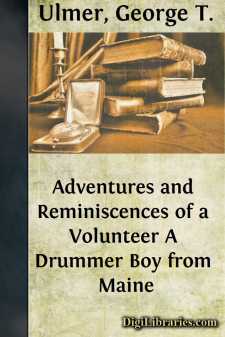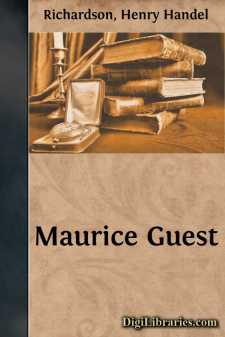Fiction
- Action & Adventure 180
- Biographical 15
- Christian 59
- Classics
- Coming of Age 5
- Contemporary Women 3
- Erotica 8
- Espionage/Intrigue 12
- Fairy Tales, Folklore & Mythology 236
- Family Life 169
- Fantasy 117
- Gay 1
- General 596
- Ghost 32
- Historical 808
- Horror 43
- Humorous 160
- Jewish 25
- Legal 4
- Medical 22
- Mystery & Detective 315
- Political 49
- Psychological 41
- Religious 64
- Romance 159
- Sagas 11
- Science Fiction 730
- Sea Stories 113
- Short Stories (single author) 537
- Sports 10
- Suspense 1
- Technological 8
- Thrillers 2
- Urban Life 31
- Visionary & Metaphysical 1
- War & Military 173
- Westerns 199
Classics Books
Sort by:
by:
Stephen Marlowe
He lit a cigarette, the last one they had, and asked his wife "Want to share it?" "No. That's all right." Diane sat at the viewport of the battered old Gormann '87, a small figure of a woman hunched over and watching the parade of asteroids like tiny slow-moving incandescent flashes. Ralph looked at her and said nothing. He remembered what it was like when she had worked by...
more...
CHAPTER I FATHER AND DAUGHTER On a hill, reared back from a northern lake, stood a weather-beaten farmhouse, creaking in a heavy winter blizzard. It was an old-fashioned, many-pillared structure. The earmarks of hard winters and the fierce suns of summer were upon it. From the main road it was scarcely discernible, settled, as it was, behind a row of pine trees, which in the night wind beat and tossed...
more...
by:
Carolyn Wells
A certain Poet once opined That life is earnest, life is real; But some are of a different mind, And turn to hear the Cap-bells peal. Oft in this Vale of Smiles I've found Foolishness makes the world go round. Ecclesiastes, Solomon, And lots of those who've passed before us, Denounced all foolishness and fun, Not so the gay and blithesome Horace; And...
more...
by:
George T. Ulmer
OMBARDMENT of Fort Sumter. This was the beginning and the first sound of actual war which inspired me, and kindled the fire of patriotism in my youthful breast. The little spark lay smoldering for two long years, ’till at last it burst forth into a full blaze. When Fort Sumter was bombarded, I was a midget of a boy; a barefooted, ragged newsboy in the city of New York. The bombardment was threatened...
more...
PREFACE Adequately to write the history of the woman of any race would mean the writing of the history of the nation itself. There is no phase of the cultural life of any people that is not founded upon the physical and moral nature of its women. On the other hand, mental and moral heredity, both through paternity and maternity, determines the character and innermost being of woman. If we knew all the...
more...
INLET AND SHORE. Here is a world of changing glow, Where moods roll swiftly far and wide; Waves sadder than a funeral's pride,Or bluer than the harebell's blow! The sunlight makes the black hulls cast A firefly radiance down the deep; The inlet gleams, the long clouds sweep,The sails flit up, the sails drop past. The far sea-line is hushed and still; The nearer sea has life and...
more...
I. One noon in 189-, a young man stood in front of the new Gewandhaus in Leipzig, and watched the neat, grass-laid square, until then white and silent in the sunshine, grow dark with many figures. The public rehearsal of the weekly concert was just over, and, from the half light of the warm-coloured hall, which for more than two hours had held them secluded, some hundreds of people hastened, with...
more...
by:
George Sampson
A DAY WITH MENDELSSOHN.uring the year 1840 I visited Leipzig with letters of introduction from Herr Klingemann of the Hanoverian Legation in London. I was a singer, young, enthusiastic, and eager—as some singers unfortunately are not—to be a musician as well. Klingemann had many friends among the famous German composers, because of his personal charm, and because his simple verses had provided them...
more...
by:
Various
THE HERETIC. It is now about three centuries since Richard Chancellor, pilot-major of the fleet which, under the command of Sir Hugh Willoughby, and by the advice of Sebastian Cabot, set out to discover a north-east passage to China, carried his ship, the Edward Bonaventura, into Archangel. The rest of the fleet put into a haven on the coast of Lapland, where all their crews, with the gallant...
more...
by:
Charles Major
CHAPTER I A CASTLE AMONG THE CRAGS Like the Israelites of old, mankind is prone to worship false gods, and persistently sets up the brazen image of a sham hero, as its idol. I should like to write the history of the world, if for no other reason than to assist several well-established heroes down from their pedestals. Great Charlemagne might come to earth's level, his patriarchal, flowing beard...
more...











